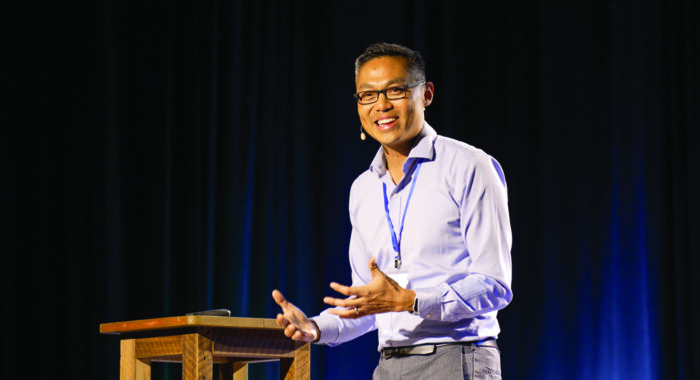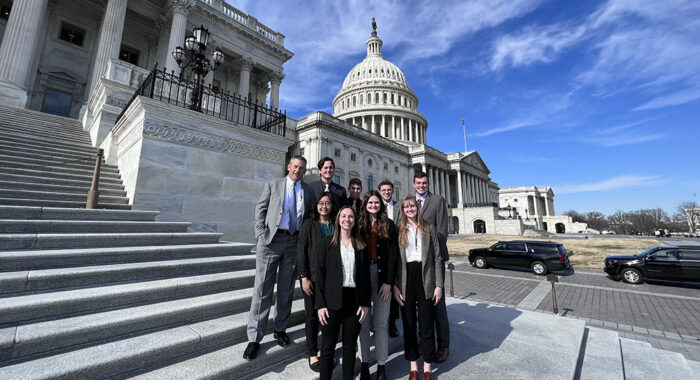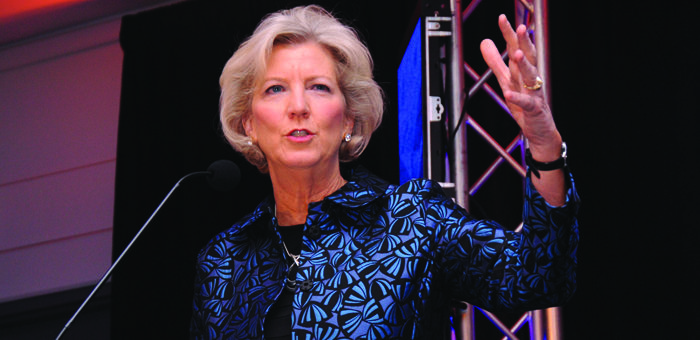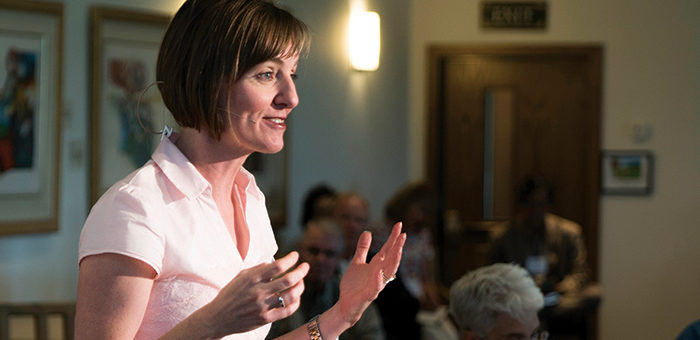
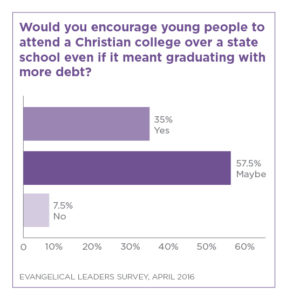 “Most evangelical leaders place a high value on Christian education, but they also believe that deciding where to go to college involves weighing several considerations, including debt,” said Leith Anderson, president of the National Association of Evangelicals (NAE). “College often sets the direction for one’s future. The decision of where to attend and the consequences of that decision should not be taken lightly.”
“Most evangelical leaders place a high value on Christian education, but they also believe that deciding where to go to college involves weighing several considerations, including debt,” said Leith Anderson, president of the National Association of Evangelicals (NAE). “College often sets the direction for one’s future. The decision of where to attend and the consequences of that decision should not be taken lightly.”
Eric Skytte, a lawyer who serves as lay member on the NAE board, said, “Any recommendation would be more dependent on the young person — their personal gifts, interests, story and fit — versus the debt consideration.”
Likewise, Nick Hall, founder of PULSE, a student-led prayer and evangelism movement, said, “It totally depends on the student and what they are wanting to get out of school.”
Dana Allin, synod executive for ECO: A Covenant Order of Evangelical Presbyterians, said that each student requires a particular environment for learning and growth. His wife thrived in a smaller, Christian environment, and said she would have felt lost in a large university.
“For her the private Christian school was the right place to be, even though she had debt. I went to a large university and thrived on having cutting edge research opportunities that would not be available at a Christian college. Being in a non-Christian environment actually strengthened my faith and ability to connect with non-believers,” he said.
Nicole Baker Fulgham, president of The Expectations Project, a faith-based education advocacy organization, agreed. “There are amazing Christian ministries at secular universities. Students can find a wonderful faith community and still get a good education as well,” she said.
Don Sweeting, president of Reformed Theological Seminary, argued that Christian schools are particularly valuable for those pursuing liberal arts degrees. “The belief structure undergirding the liberal arts is a Christian vision. When that vision fades, the liberal arts go into disarray. If we are just talking about specific job training, then state schools are more of an option.”
In their comments, some Christian college presidents pushed back on negative perceptions — and a sometimes inaccurate understanding — of student debt. “In the state of Minnesota, public students graduate with more debt due to less state support and the length of time needed to complete an academic program due to closed classes or limited access to specific courses within the curriculum,” said Alan Cureton, president of University of Northwestern in St. Paul, Minnesota. “More than half of our entering students come with previous college credit thereby shortening the duration of time needed to complete their degree.”
Houghton College President Shirley Mullen said, “While I would not encourage going into limitless debt — even for the privilege of going to a Christian college — I would definitely encourage students to be willing to incur some debt. I question the notion out there among some Christians today that all debt is equally bad. Taking out some debt for college is more like an investment in one’s future than like incurring credit debt. My point here is that faithful stewardship is more complex than simply not taking on debt.”
Several evangelical leaders spoke to the unique opportunity for growth and encouragement of faith and vocation at Christian colleges.
Michael Henderson, lead pastor of New Beginnings Church in Matthews, North Carolina, said, “The value of what students would potentially receive from a Christian college would be worth the financial investment over a state school even if it meant leaving school with more debt. I see attending a reputable Christian school as an investment you can’t put a price tag on!”
The Evangelical Leaders Survey is a monthly poll of the Board of Directors of the National Association of Evangelicals. They include the CEOs of denominations and representatives of a broad array of evangelical organizations including missions, universities, publishers and churches.



 View All Surveys
View All Surveys 



